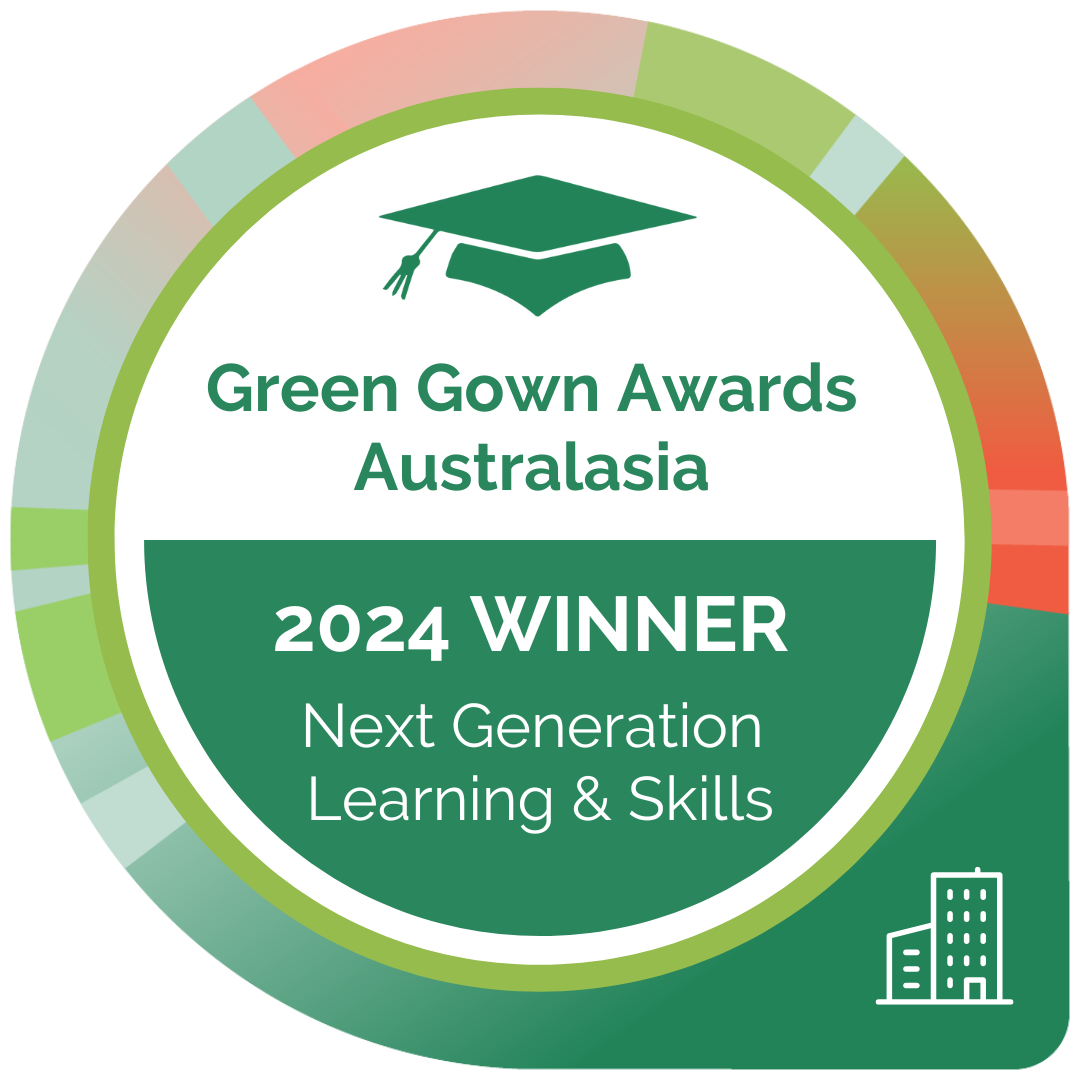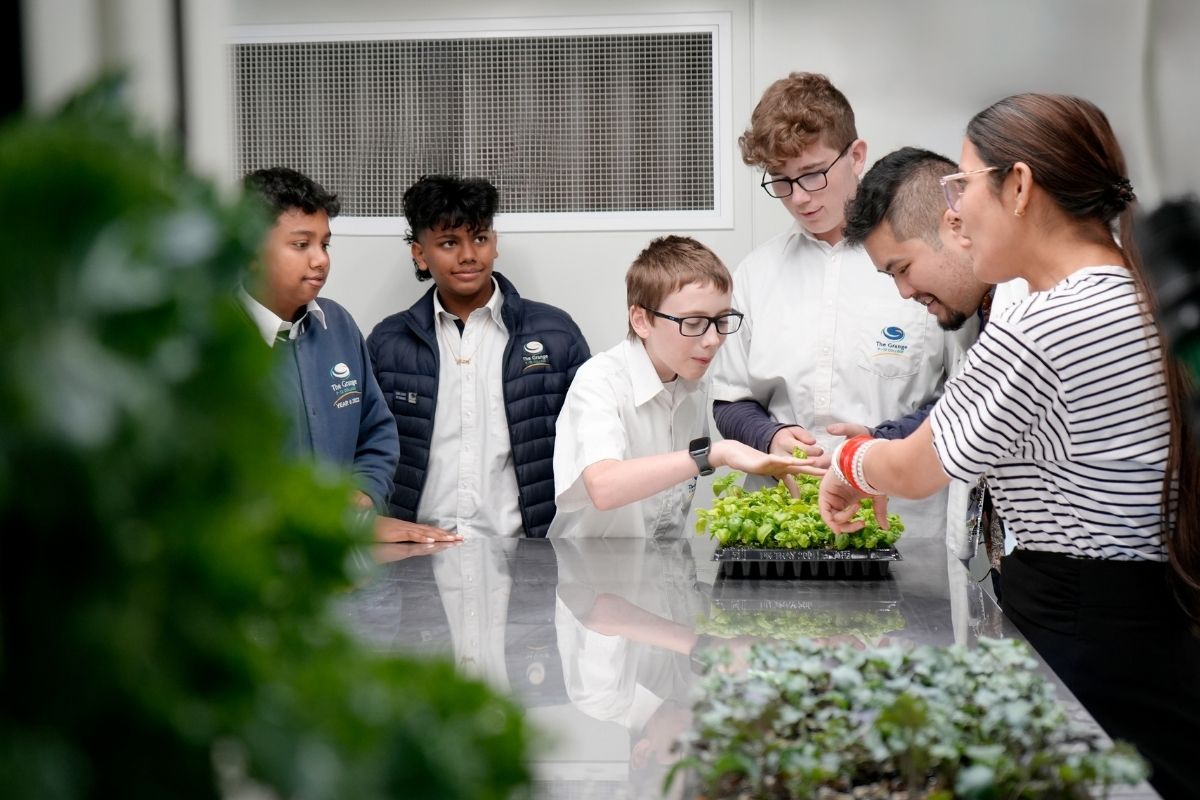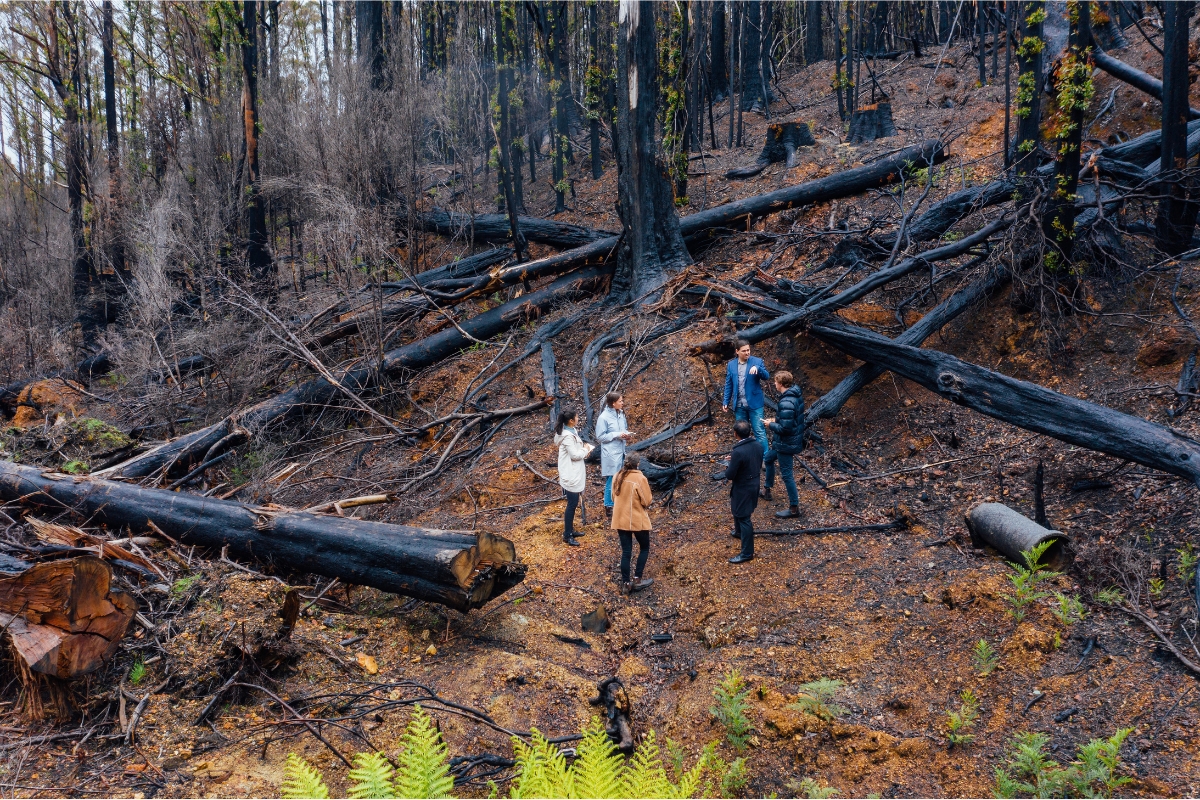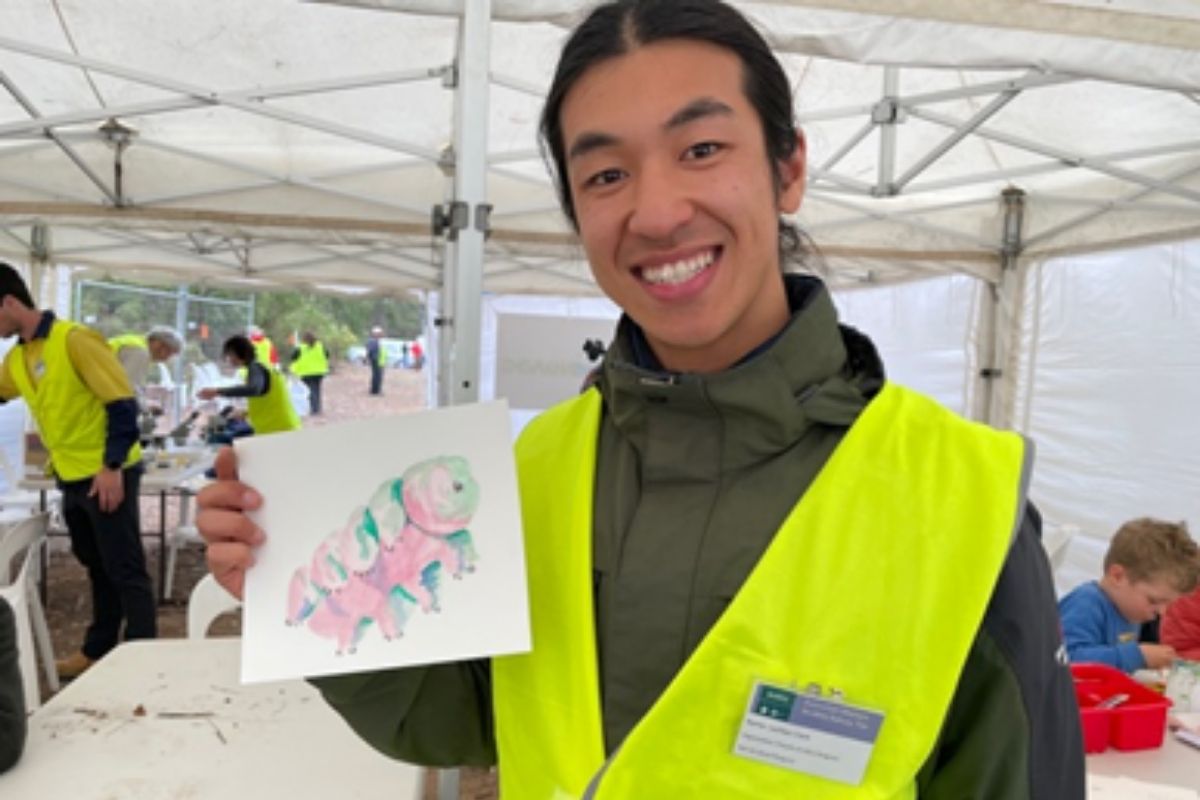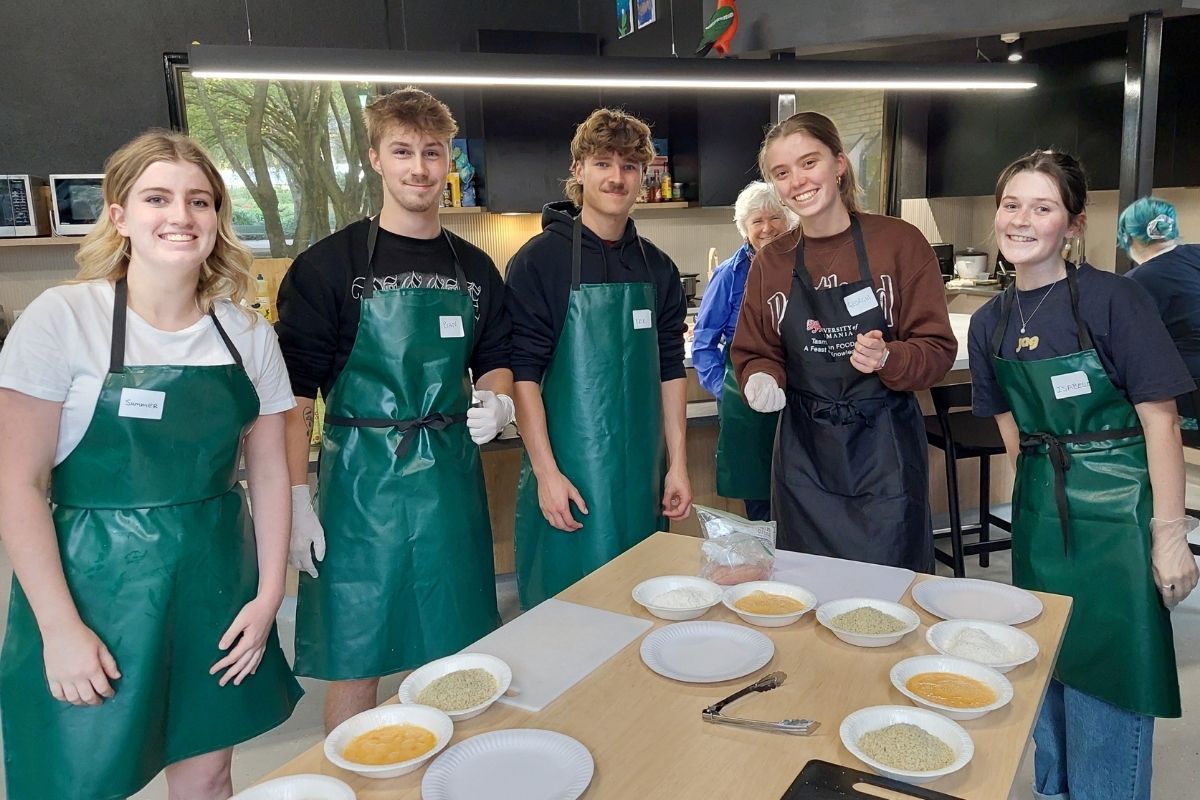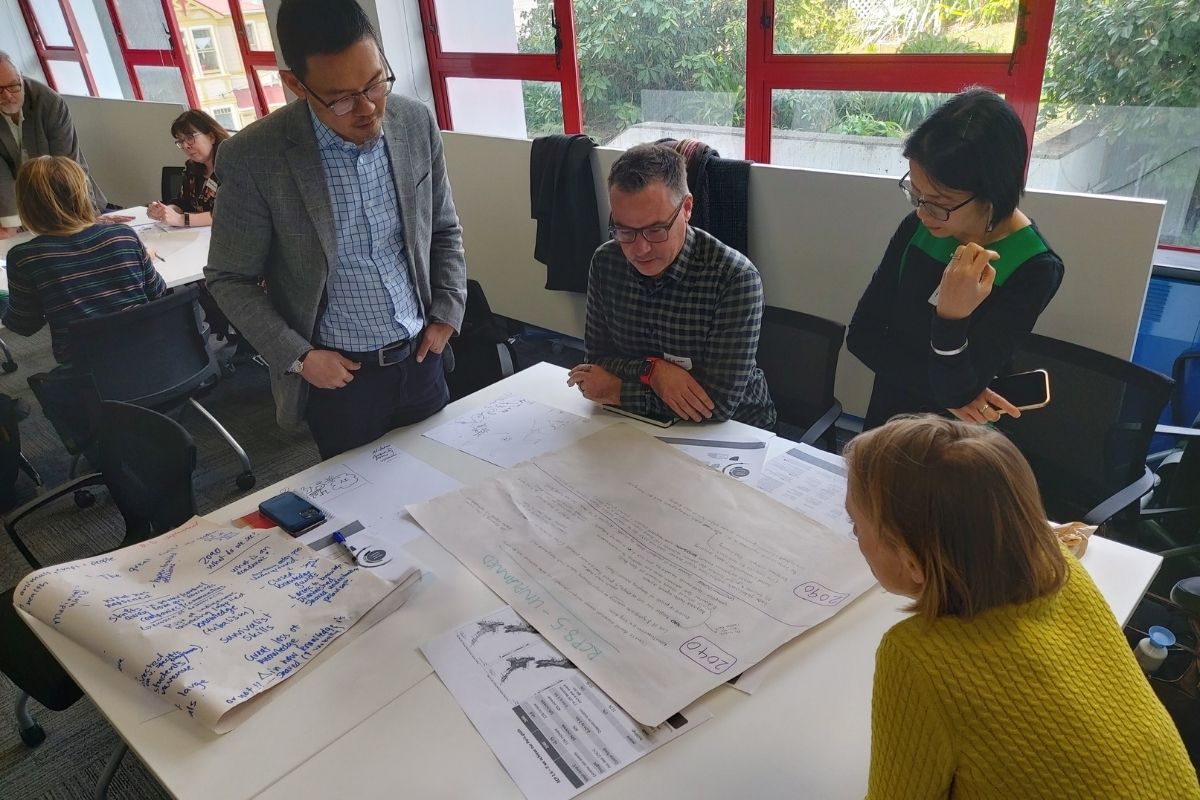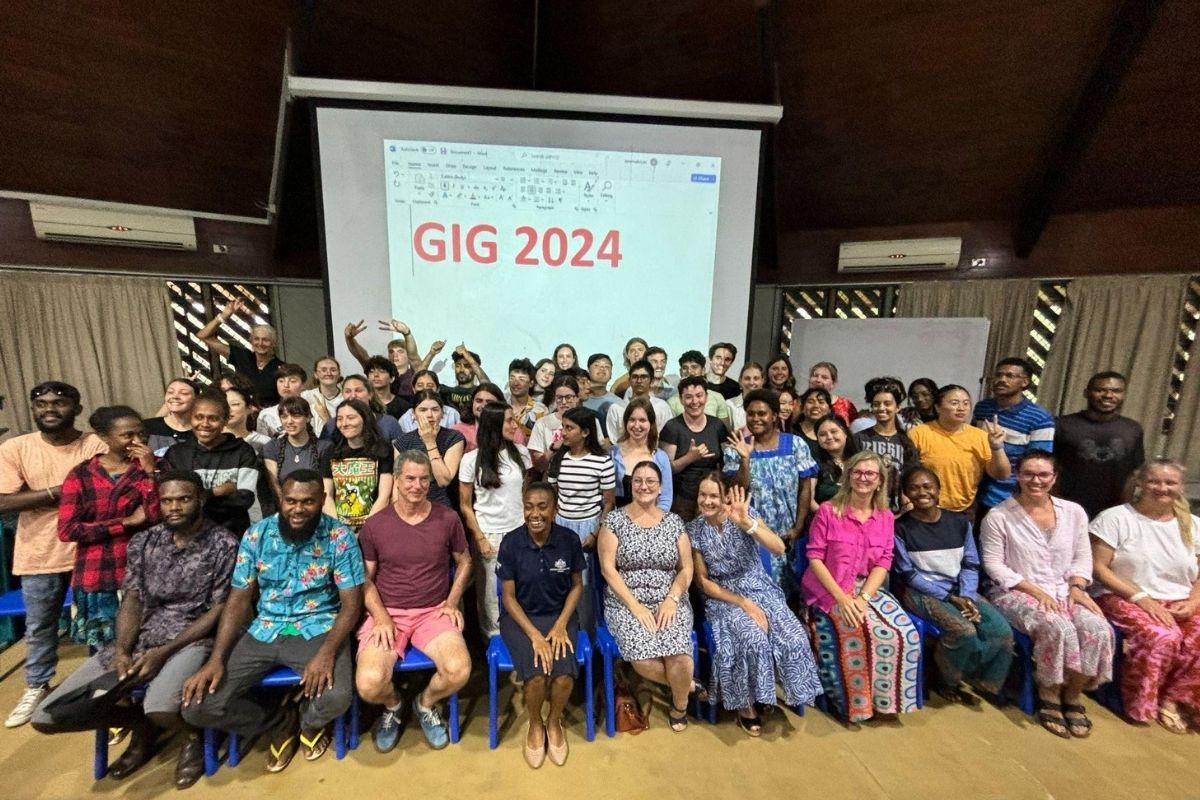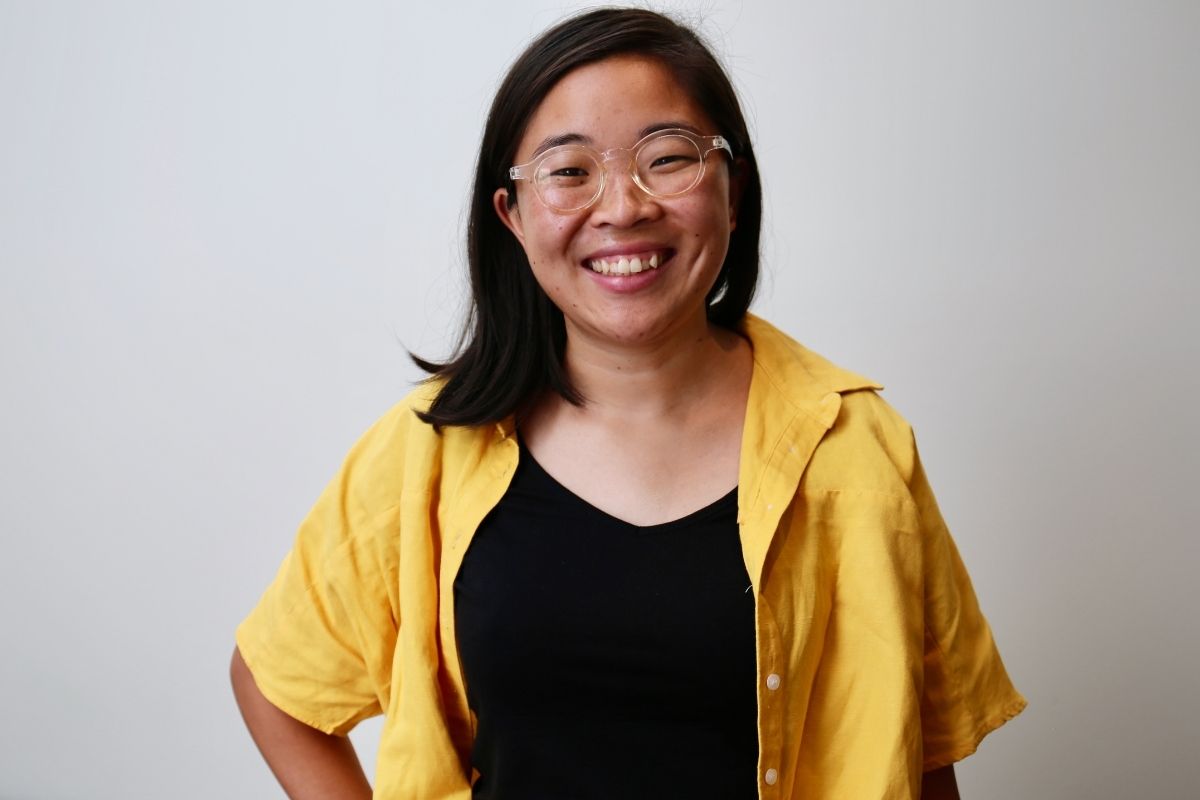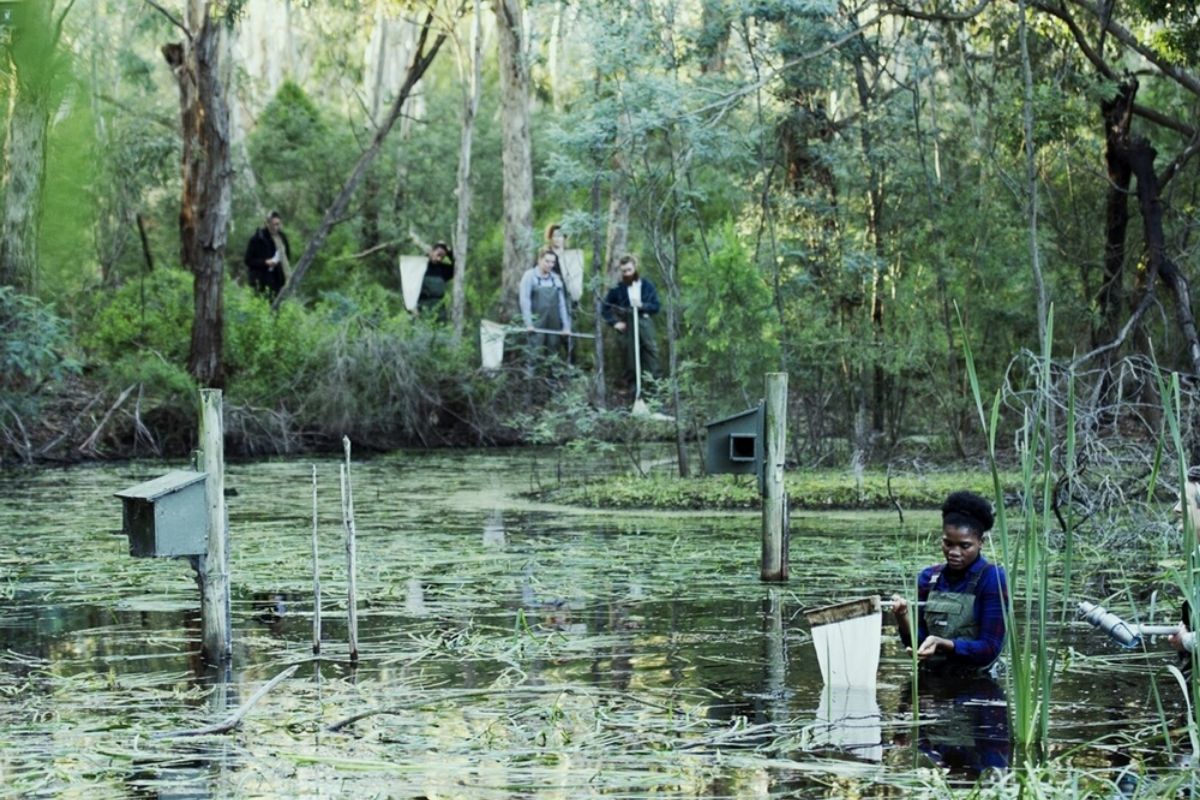Next Generation Learning & Skills/Winners category
The University of Tasmania (UTAS) has introduced the “Sustainability University Major (SUM)” as a transformative curriculum initiative designed to embed sustainability as a core competency across undergraduate programs. Launched in 2023, the SUM allows students from various disciplines to pursue sustainability as a second major, integrating knowledge from fields such as Science, Arts, ICT, Economics, Business, and Health. This interdisciplinary approach equips students with the skills and knowledge needed to address complex global challenges, emphasising systems thinking, values-based decision-making, and practical change-making. The SUM has rapidly grown in popularity, with 150 students currently enrolled, and projections indicate enrolment will exceed 250 by 2025.
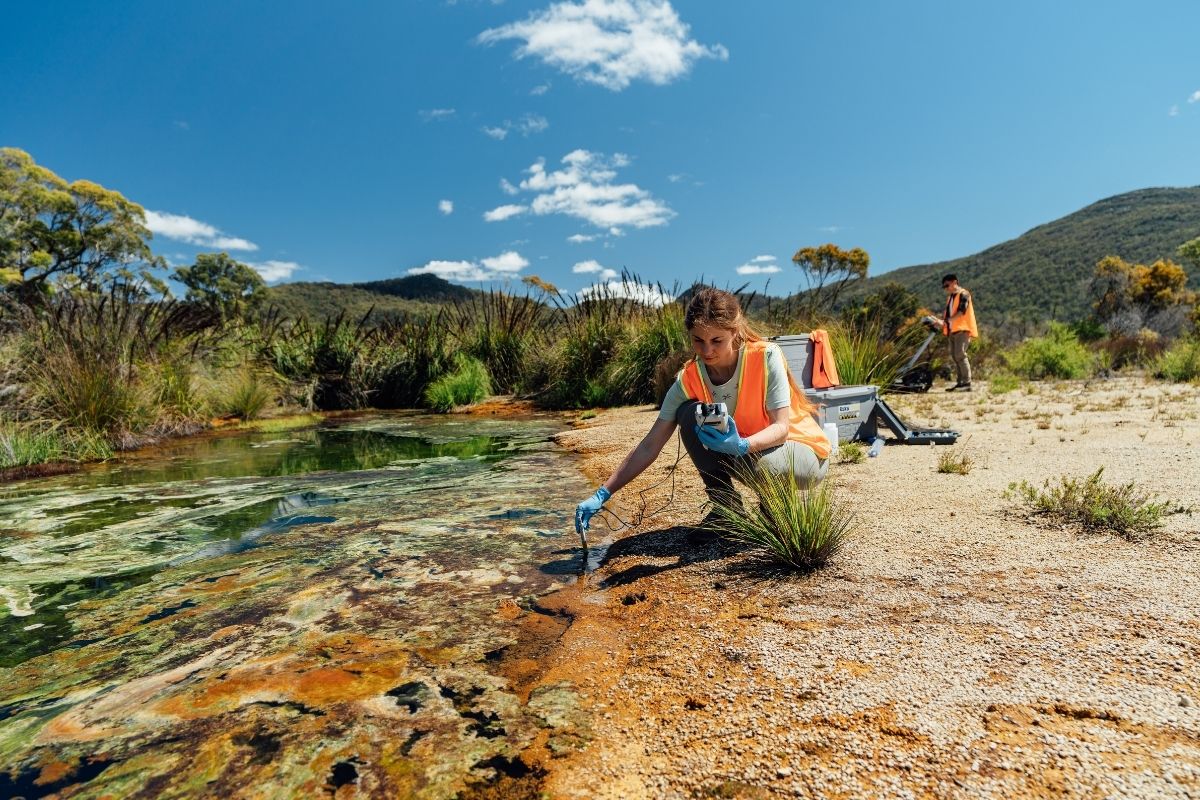
Environmental and Social Benefits
- Widespread Sustainability Literacy: The SUM equips students with sustainability competencies across multiple disciplines, ensuring graduates are prepared to apply sustainable practices in diverse professional contexts. This broad dissemination of sustainability knowledge supports the development of a workforce capable of addressing environmental and social challenges.
- Interdisciplinary Learning: The program fosters collaboration between different academic disciplines, encouraging students to approach sustainability from various perspectives. This interdisciplinary focus promotes innovative problem-solving and prepares students to tackle complex, real-world issues.
- Community and Industry Impact: Through the Sustainability Placement Experience unit, students engage with local organisations to implement sustainability projects, directly contributing to the community’s environmental goals and strengthening university-community partnerships.
Leadership and Engagement
- Collaborative Governance: The SUM is jointly governed by all Colleges of UTAS, ensuring broad institutional support and integration across academic departments. This governance model promotes shared responsibility for sustainability education and fosters collaboration between faculty members from different disciplines.
- Student and Staff Involvement: The initiative has garnered strong support from both students and staff, with over 20 academic staff from nine different Schools/Centres involved in developing and delivering the curriculum. This widespread engagement reflects the university community’s commitment to sustainability and enhances the program’s impact.
- Rapid Implementation: The development and rollout of the SUM were driven by both top-down executive leadership and bottom-up advocacy from the Education for Sustainability Community of Practice. The initiative’s swift implementation demonstrates UTAS’s agility in responding to student demand and advancing sustainability education.
Significance to the Sector
- Innovative Curriculum Structure: The SUM represents a modern approach to sustainability education in Australia, offering a cross-university major that integrates sustainability into a wide range of degree programs. This model has the potential to be replicated by other universities seeking to embed sustainability across their curricula.
- Sector Leadership: UTAS’s SUM sets a new benchmark for interdisciplinary sustainability education, with its innovative structure and comprehensive governance model. The program’s success positions UTAS as a leader in sustainability education, influencing practices across the higher education sector.
- Global Recognition: As a leading Australian university to offer a sustainability major with such broad interdisciplinary reach, UTAS’s initiative has gathered attention both nationally and internationally, contributing to global efforts to enhance sustainability education.
Wider Societal Impact
- Workforce Development: Graduates of the SUM are equipped with the knowledge and skills to drive sustainability in various sectors, from government and industry to non-profit organisations. This contributes to the creation of a workforce capable of leading sustainability initiatives and addressing global challenges.
- Public Awareness and Engagement: The SUM enhances public awareness of sustainability by involving students in community-based projects and promoting sustainability literacy across a wide audience. These efforts support broader societal goals of environmental stewardship and social equity.
- Long-Term Impact on Education: The success of the SUM is expected to influence the development of similar interdisciplinary programs at other universities, leading to a broader adoption of sustainability education and a greater emphasis on interdisciplinary learning in higher education.
The University of Tasmania’s “Sustainability University Major (SUM)” is a significant initiative that highlights the university’s commitment to sustainability and interdisciplinary education. By integrating sustainability into a wide range of degree programs, the SUM not only prepares students to address complex global challenges but also sets a new standard for higher education. The initiative’s success demonstrates the power of collaborative governance and innovative curriculum design in advancing sustainability education, making it a model for other institutions to follow.
Top 3 learnings
Supported by

Category finalists
Next Generation Learning & Skills
Next Generation Learning & Skills
Sustainability Institution of the Year/Winners
Sustainability Institution of the Year/Winners
Climate Action/Winners
Climate Action/Winners
Creating Impact/Winners
Creating Impact/Winners
Student Engagement/Winners
Student Engagement/Winners
Powerful Partnerships/Winners
Powerful Partnerships/Winners
Next Generation Learning & Skills
Next Generation Learning & Skills
Diversity, Equity and Inclusion/Winners
Diversity, Equity and Inclusion/Winners
Next Generation Learning & Skills
Next Generation Learning & Skills
Nature Positive/Winners
Nature Positive/Winners
Staff Champion/Winners
Staff Champion/Winners
Student Champion/Winners
Student Champion/Winners
Past winners
Benefitting Society/Winners
Benefitting Society/Winners
Diversity, Equity & Inclusion in Sustainability/Winners
Diversity, Equity & Inclusion in Sustainability/Winners
Climate Action/Winners
Climate Action/Winners
Sustainability Institution of the Year/Winners
Sustainability Institution of the Year/Winners
Creating Impact/Winners
Creating Impact/Winners
Creating Impact/Winners
Creating Impact/Winners
Top 3 learnings
Next Generation Learning & Skills/Winners category
The University of Tasmania (UTAS) has introduced the “Sustainability University Major (SUM)” as a transformative curriculum initiative designed to embed sustainability as a core competency across undergraduate programs. Launched in 2023, the SUM allows students from various disciplines to pursue sustainability as a second major, integrating knowledge from fields such as Science, Arts, ICT, Economics, Business, and Health. This interdisciplinary approach equips students with the skills and knowledge needed to address complex global challenges, emphasising systems thinking, values-based decision-making, and practical change-making. The SUM has rapidly grown in popularity, with 150 students currently enrolled, and projections indicate enrolment will exceed 250 by 2025.

Environmental and Social Benefits
- Widespread Sustainability Literacy: The SUM equips students with sustainability competencies across multiple disciplines, ensuring graduates are prepared to apply sustainable practices in diverse professional contexts. This broad dissemination of sustainability knowledge supports the development of a workforce capable of addressing environmental and social challenges.
- Interdisciplinary Learning: The program fosters collaboration between different academic disciplines, encouraging students to approach sustainability from various perspectives. This interdisciplinary focus promotes innovative problem-solving and prepares students to tackle complex, real-world issues.
- Community and Industry Impact: Through the Sustainability Placement Experience unit, students engage with local organisations to implement sustainability projects, directly contributing to the community’s environmental goals and strengthening university-community partnerships.
Leadership and Engagement
- Collaborative Governance: The SUM is jointly governed by all Colleges of UTAS, ensuring broad institutional support and integration across academic departments. This governance model promotes shared responsibility for sustainability education and fosters collaboration between faculty members from different disciplines.
- Student and Staff Involvement: The initiative has garnered strong support from both students and staff, with over 20 academic staff from nine different Schools/Centres involved in developing and delivering the curriculum. This widespread engagement reflects the university community’s commitment to sustainability and enhances the program’s impact.
- Rapid Implementation: The development and rollout of the SUM were driven by both top-down executive leadership and bottom-up advocacy from the Education for Sustainability Community of Practice. The initiative’s swift implementation demonstrates UTAS’s agility in responding to student demand and advancing sustainability education.
Significance to the Sector
- Innovative Curriculum Structure: The SUM represents a modern approach to sustainability education in Australia, offering a cross-university major that integrates sustainability into a wide range of degree programs. This model has the potential to be replicated by other universities seeking to embed sustainability across their curricula.
- Sector Leadership: UTAS’s SUM sets a new benchmark for interdisciplinary sustainability education, with its innovative structure and comprehensive governance model. The program’s success positions UTAS as a leader in sustainability education, influencing practices across the higher education sector.
- Global Recognition: As a leading Australian university to offer a sustainability major with such broad interdisciplinary reach, UTAS’s initiative has gathered attention both nationally and internationally, contributing to global efforts to enhance sustainability education.
Wider Societal Impact
- Workforce Development: Graduates of the SUM are equipped with the knowledge and skills to drive sustainability in various sectors, from government and industry to non-profit organisations. This contributes to the creation of a workforce capable of leading sustainability initiatives and addressing global challenges.
- Public Awareness and Engagement: The SUM enhances public awareness of sustainability by involving students in community-based projects and promoting sustainability literacy across a wide audience. These efforts support broader societal goals of environmental stewardship and social equity.
- Long-Term Impact on Education: The success of the SUM is expected to influence the development of similar interdisciplinary programs at other universities, leading to a broader adoption of sustainability education and a greater emphasis on interdisciplinary learning in higher education.
The University of Tasmania’s “Sustainability University Major (SUM)” is a significant initiative that highlights the university’s commitment to sustainability and interdisciplinary education. By integrating sustainability into a wide range of degree programs, the SUM not only prepares students to address complex global challenges but also sets a new standard for higher education. The initiative’s success demonstrates the power of collaborative governance and innovative curriculum design in advancing sustainability education, making it a model for other institutions to follow.
Supported by

Related finalists
Next Generation Learning & Skills
Next Generation Learning & Skills
Sustainability Institution of the Year/Winners
Sustainability Institution of the Year/Winners
Climate Action/Winners
Climate Action/Winners
Creating Impact/Winners
Creating Impact/Winners
Student Engagement/Winners
Student Engagement/Winners
Powerful Partnerships/Winners
Powerful Partnerships/Winners
Next Generation Learning & Skills
Next Generation Learning & Skills
Diversity, Equity and Inclusion/Winners
Diversity, Equity and Inclusion/Winners
Next Generation Learning & Skills
Next Generation Learning & Skills
Nature Positive/Winners
Nature Positive/Winners
Staff Champion/Winners
Staff Champion/Winners
Student Champion/Winners
Student Champion/Winners
Other finalists
Climate Action

Driving Towards Tomorrow’s Campus with Vehicle-to-Grid EV Technology
As part of Flinders University’s drive to innovate and become a leader in climate action, the University launched its Vehicle-to-Grid (V2G) initiative. This involved installing and maintaining 20x V2G and smart chargers for its growing electric vehicle fleet. Leveraging 100% renewable energy generated by ENGIE’s Willogoleche Wind Farm and Flinders University’s solar power systems, this enables the storage of renewable energy in EV batteries to be discharged on campus during peak demand periods. Hence, allows for these EV fleets to operate as a Virtual Power Plant (VPP) to deliver peak demand management and optimization of behind-the-meter generation.
Overall, this initiative demonstrates the reliability and scalability of bi-directional and uni-directional smart-charging systems for EVs in reducing GHG emissions while facilitating teaching, research, and innovation opportunities. Moreover, it exemplifies a sustainable and innovative solution to scale energy storage technology and increase renewables.
Sustainability Champion – Staff/Winners

Brandan Espe
Environmental Officer / Acting Grounds Supervisor
Brandan has brought over 50 federally listed Endangered species of plant into the James Cook University living collection, many of which have never been cultivated and are found in no other collection in the world.
Of these, over half have been sustainably wild collected, inclusive of field and clone data, so they can be used for ongoing conservation, research and teaching, the remaining being sourced from private and partner organisations through favours of service or trades.
He personally funded the project from 2019-2022, until funding was awarded for the program due to its success, with the program now being engrained into the Universities landscapes for ongoing management should he leave JCU, creating a threatened species legacy collection.
The program has now expanded beyond this, with an additional 48 species now funded for further addition, some of which are only known from less than 5 sightings in history.
Student Engagement

Sustainability Leaders creating real impact!
La Trobe created a unique Sustainability Leaders volunteering program to increase engagement with students on campus and empower them to act against waste and promote sustainability. It included the following initiatives:
- Promoting the reusable crockery implementation,
- Increasing knowledge action of other students on campus to diversion comingled recycling and organic waste from landfill.
- Focus on waste audits and data,
- Improved signage through new waste posters for students living on campus.
- Collaboration with Cirka (our cleaning and waste partner) to create a waste wall and;
- Learning all things sustainability (net zero, biodiversity, waste, reusables, engagement)
These initiatives yielded significant results and with a reduction in waste contamination by almost 40% at the residential buildings and engagement with over 80 groups of people for the Reusable Revolution.
Creating Impact

Where knowledge meets habits: Empowering students for a sustainable tomorrow
Our online Sustainability Challenges offer participants an engaging, self-paced learning experience centered around a specific United Nations Sustainable Development Goal (UNSDG). Requiring minimal resourcing and at zero-cost to participants, we’ve created replicable, compact, scalable, and impactful learning opportunities that result in real impact.
The Challenges follow a structured process that moves participants from knowledge gain to simple action to celebration, to establish small but mighty habits relating to waste and carbon emissions. This approach recognises that knowledge alone is often insufficient to drive behaviour change, and that ease of action and celebration are crucial components in creating sustainable habits.
Sustainability Champion – Staff/Winners

Catherine (CeeJay) Donovan
Veterinary nurse – Anaesthesia
From establishing the Massey Vet School Green Team to leading impactful initiatives, my commitment to environmental sustainability has been making waves. With the help of my team, I have accomplished numerous small, yet meaningful actions, including integrating a sustainability lecture for final year vet students and implementing battery recycling alongside rechargeable battery use. Our larger projects encompass the introduction of green waste and soft plastics recycling bins, an energy audit resulting in power-saving measures, and playing a part in a successful rubbish audit. I spearheaded the ‘6 in 6’ campaign, empowering individuals with six simple steps for workplace sustainability. Through the SustainaVet social media pages I help to educate and inspire peers nationwide. As the Massey School of Veterinary Science sustainability champion, I had the privilege of speaking at the annual veterinary conference on sustainability in clinical practice. Currently I’m conducting pioneering research on responsible cat waste disposal. Together, we’re forging a greener future, one initiative at a time.
Sustainability Champion – Student

Louis Walmsley
SDG Coordinator Monash Association of Sustainability, Office Bearer Monash Student Association’s Environmental and Social Justice Department, Masters of Environment and Sustainability Student
Louis is an exceptional student sustainability leader at Monash University. His passion and dedication to sustainability have made a significant impact on the community. Louis’s values revolve around sustainability, which is evident upon meeting him. He actively participates in various sustainability groups, demonstrating his commitment to creating a more environmentally conscious society.
One of Louis’s notable involvements is with Precious Plastic Monash, where he organizes remarkable events and fosters collaboration among like-minded individuals, student groups, and staff. His contributions to the Monash Association of Sustainability have allowed him to conduct valuable research on plastic usage and climate action, resulting in positive changes within the university.
Through his work with the Monash Student Association, Louis has engaged hundreds of students in fun and interactive sustainability initiatives. He took the initiative to organize a sustainability food fair, which was one of the largest sustainability-related events held at Monash post-COVID. This accomplishment is a true testament to Louis’s hard work and creativity.
Louis is an outstanding student leader whose efforts in sustainability have had a lasting impact on Monash University and its community. His inspiring nature resonates with everyone who knows him.


